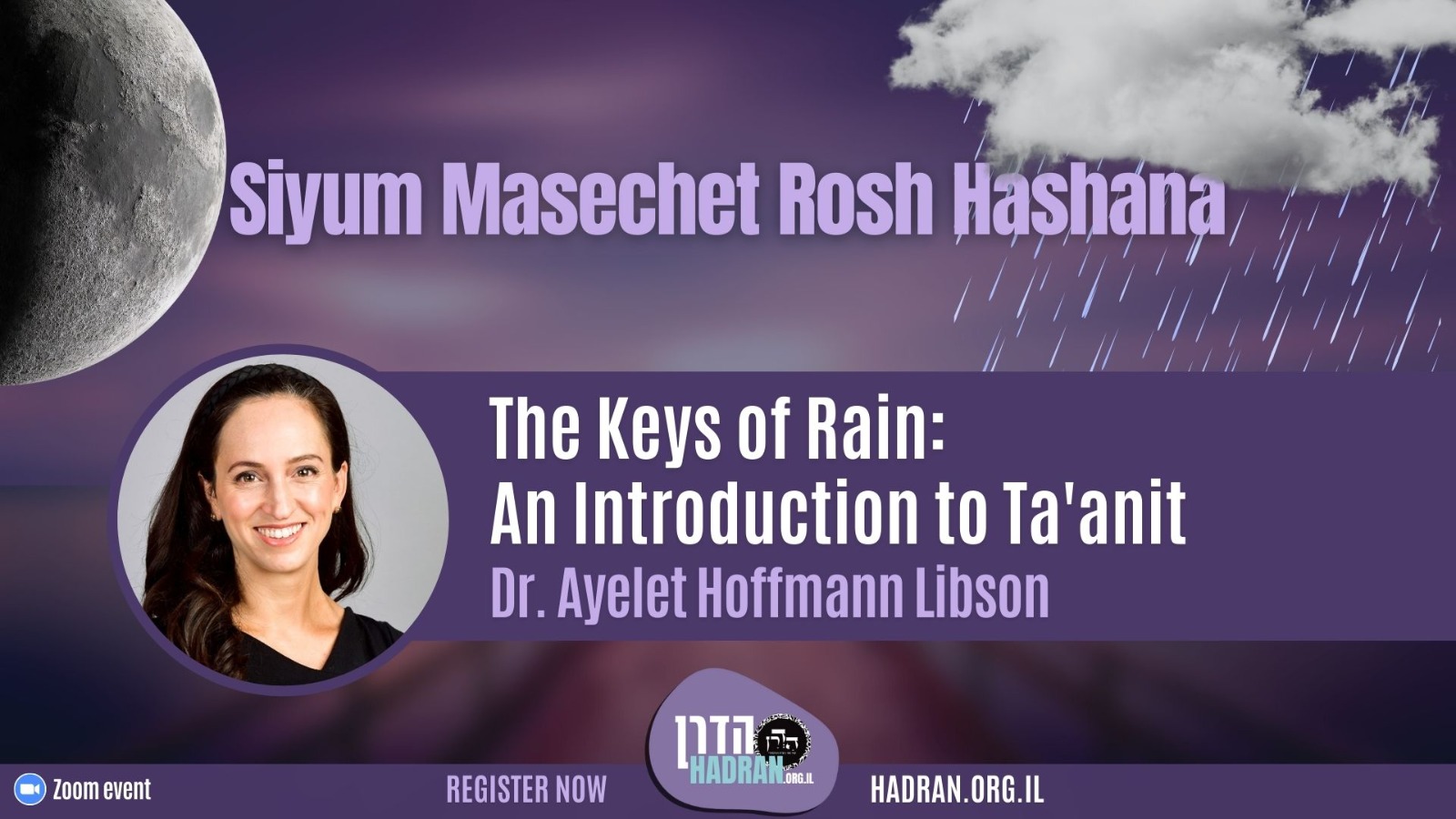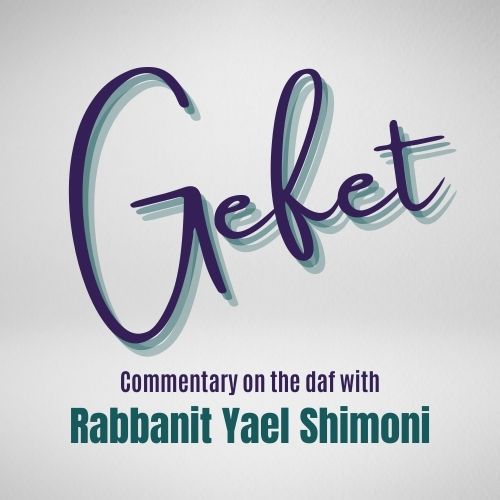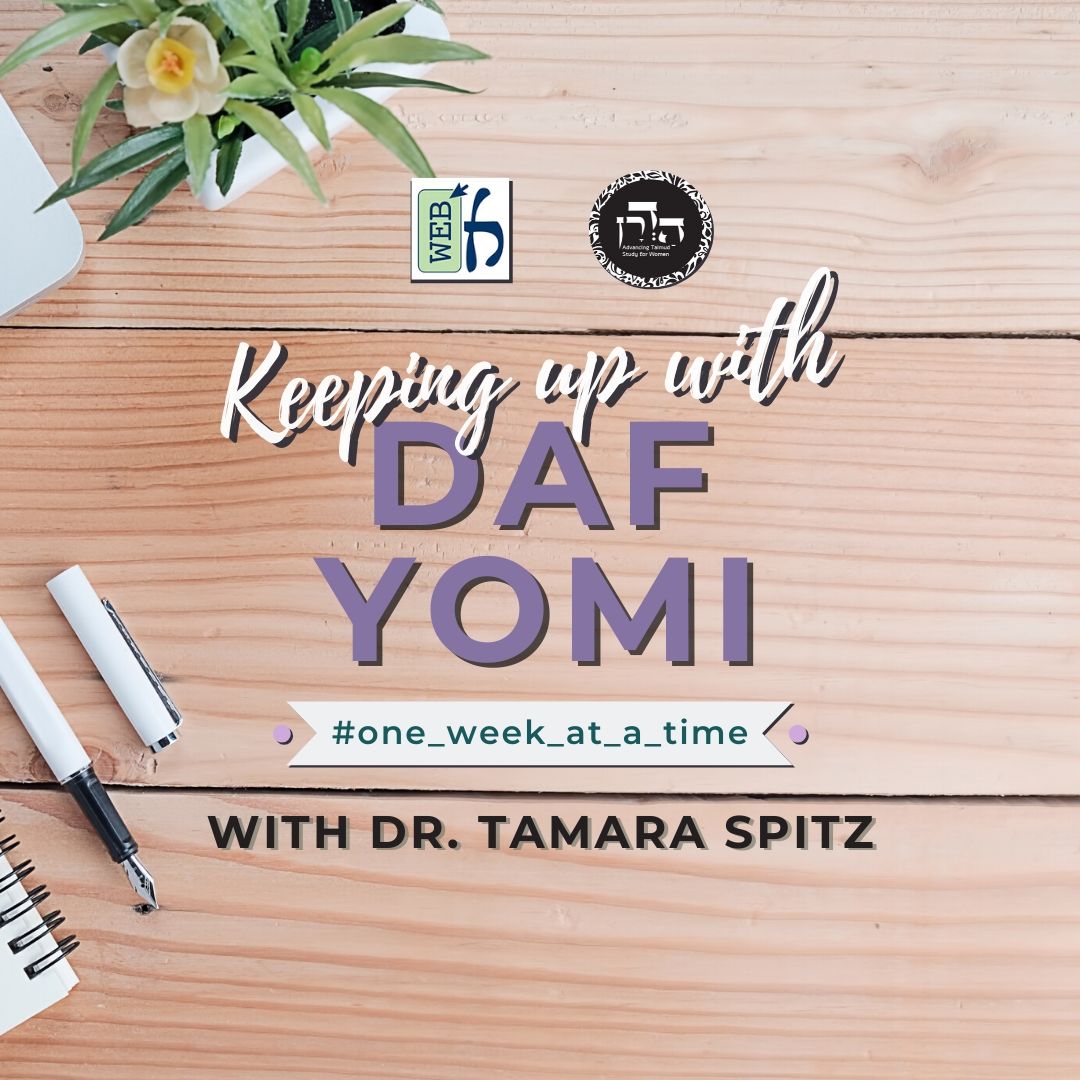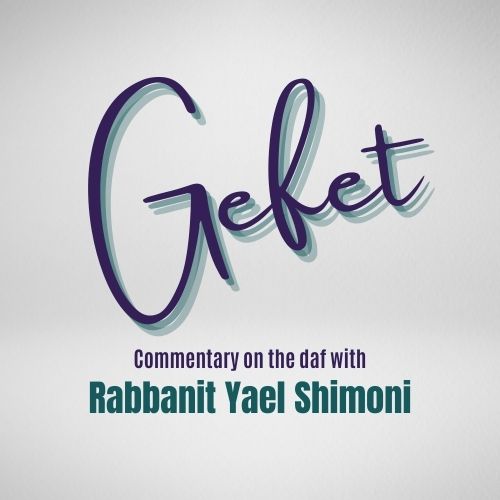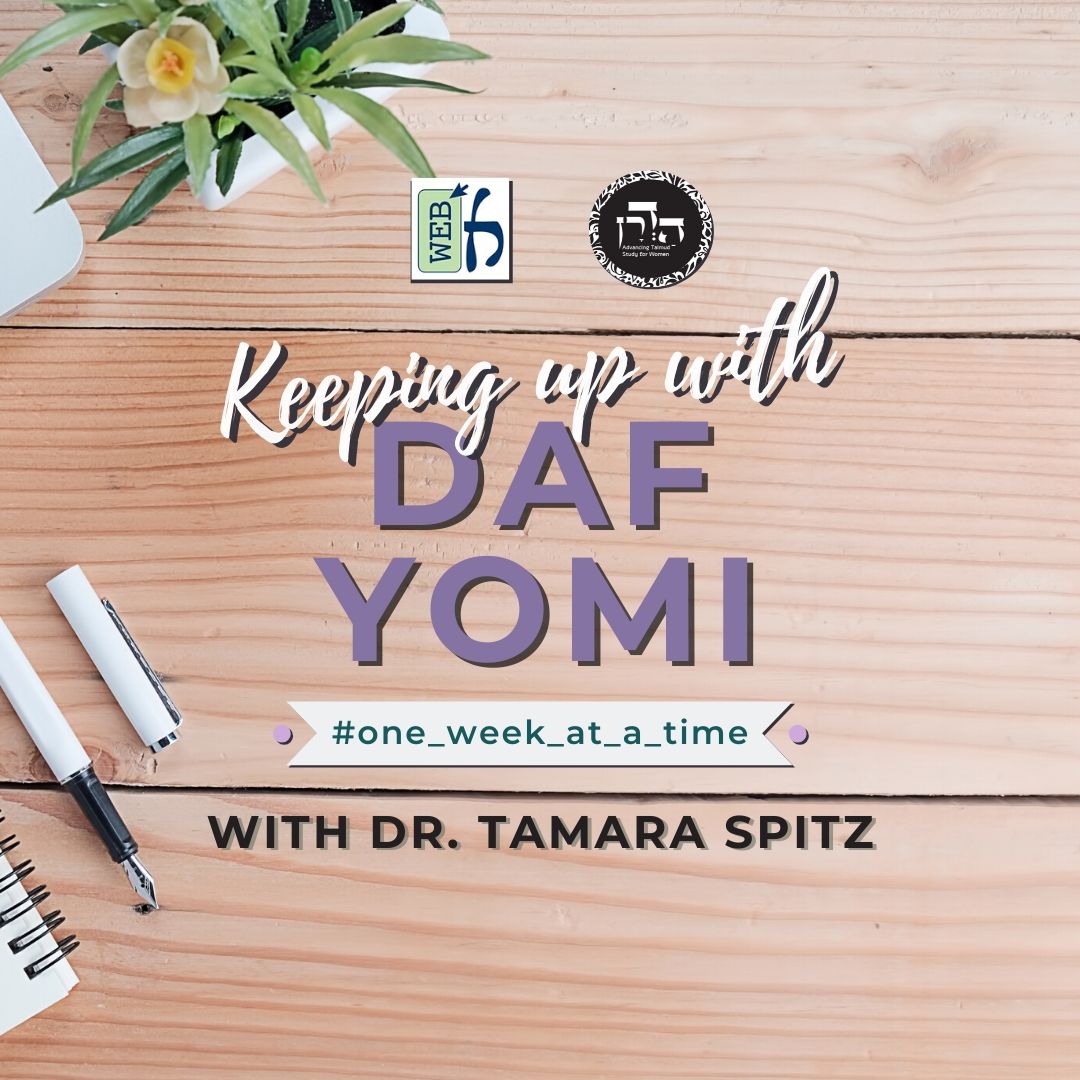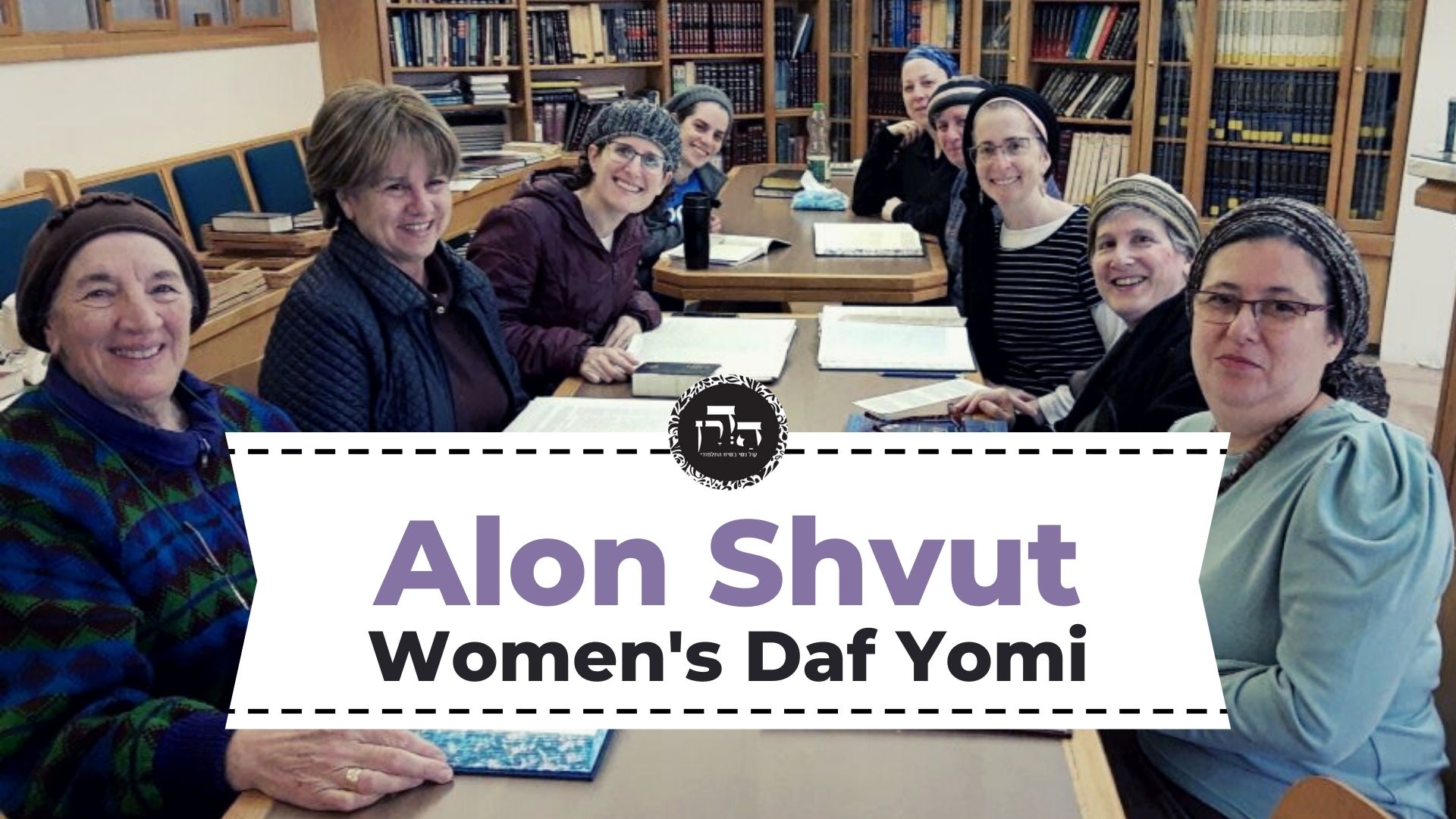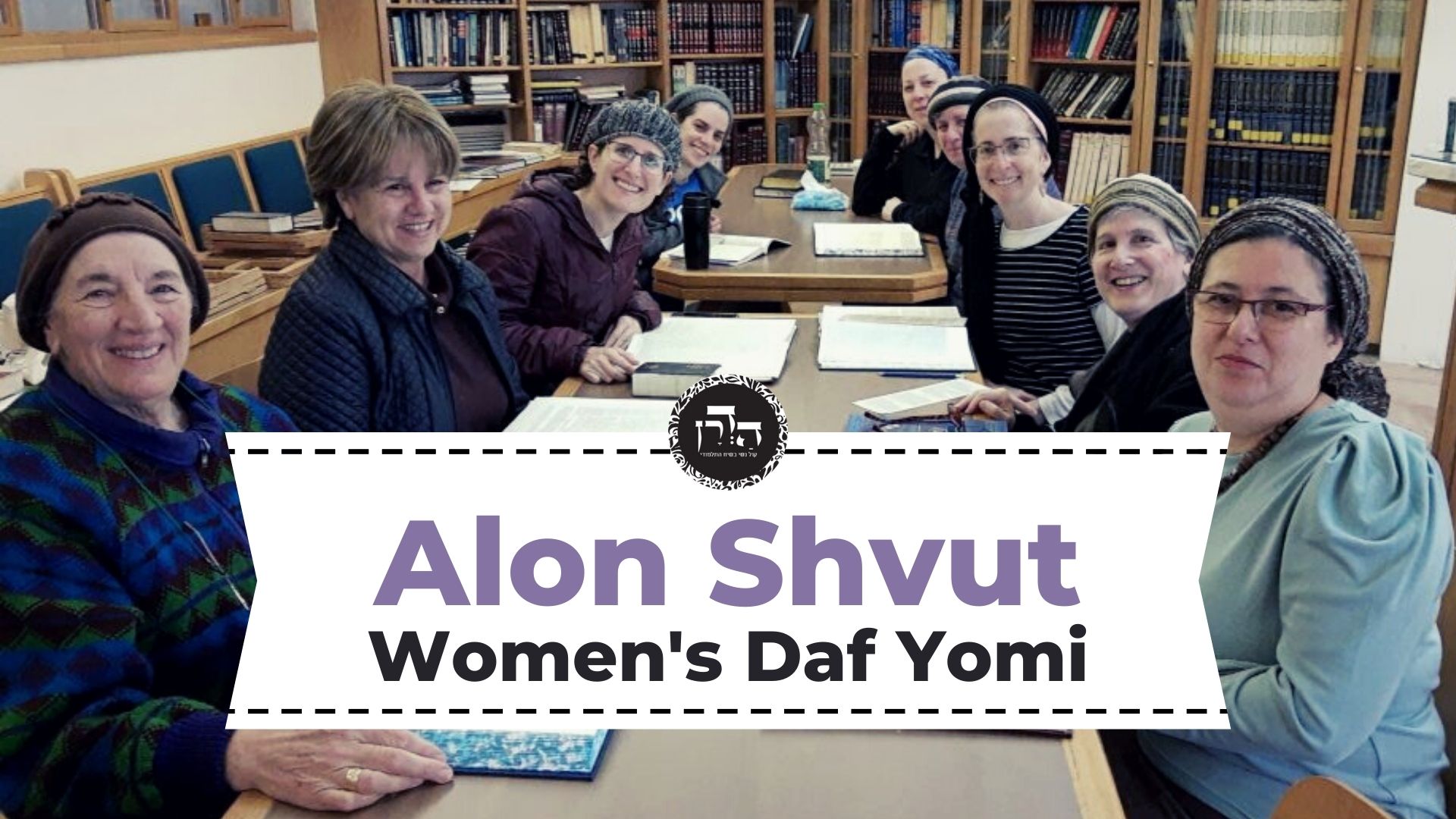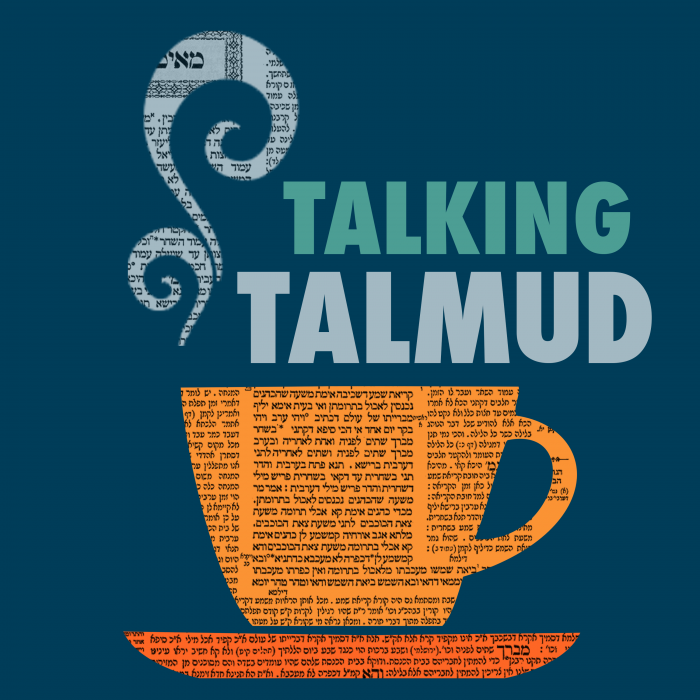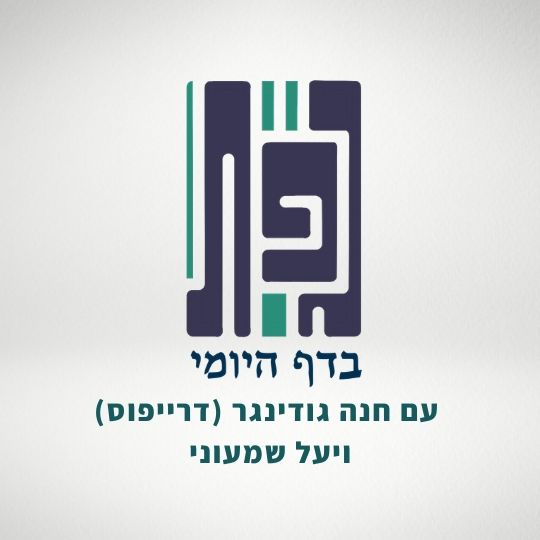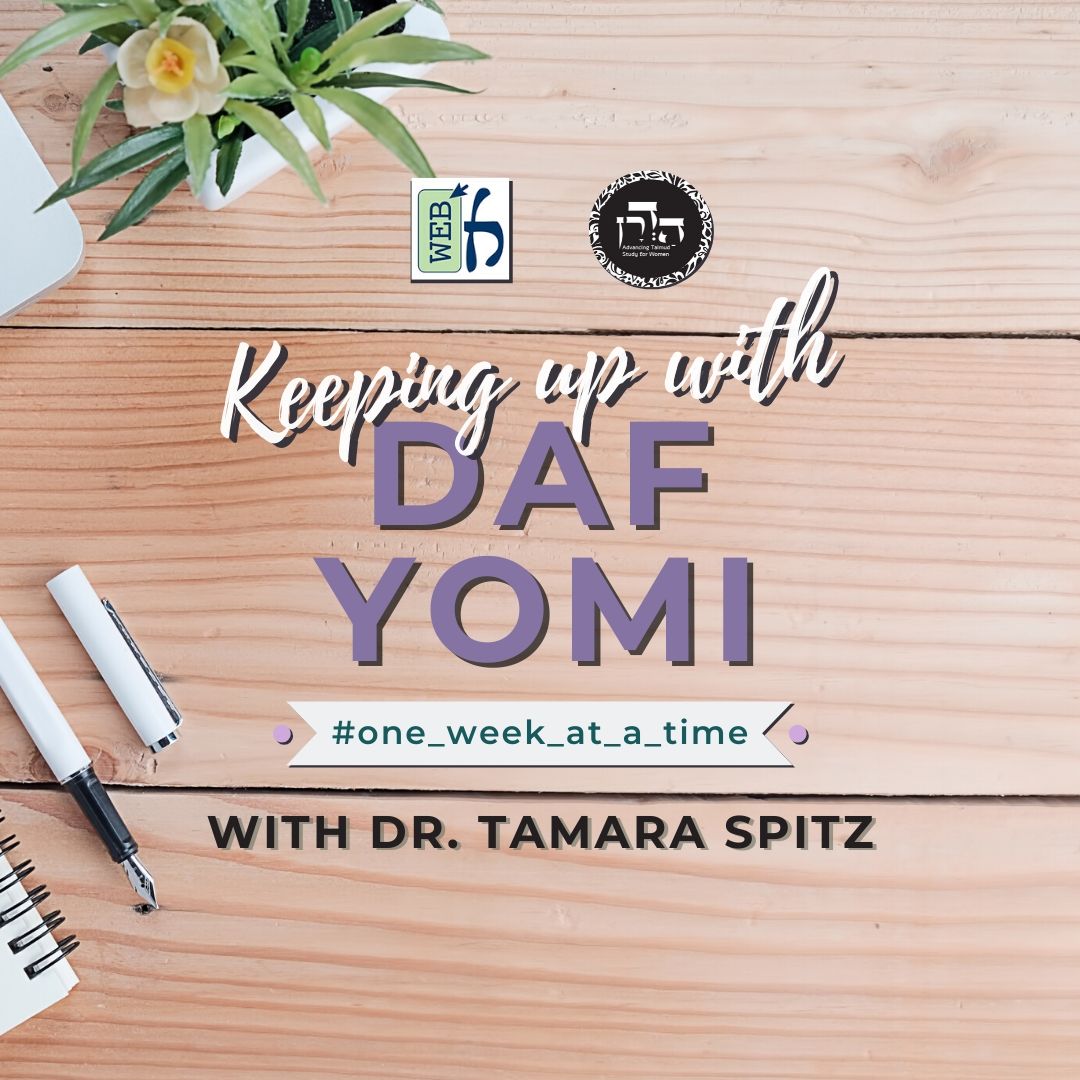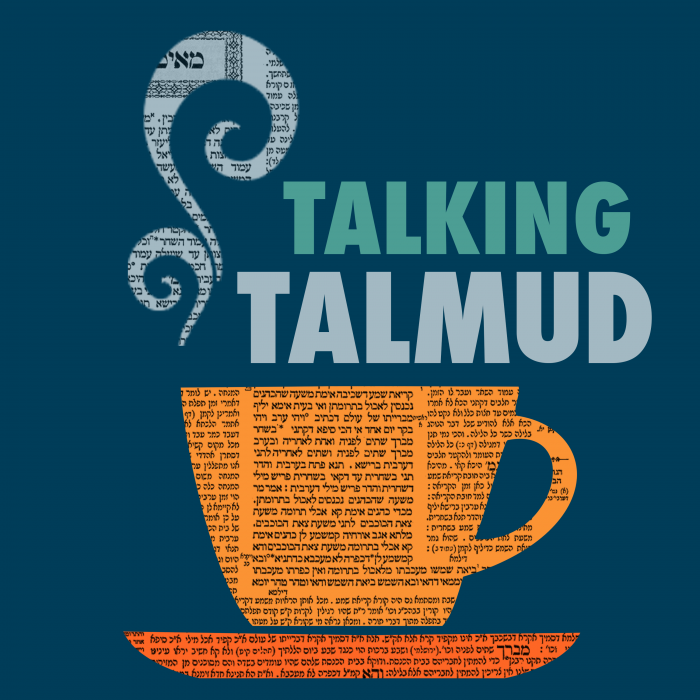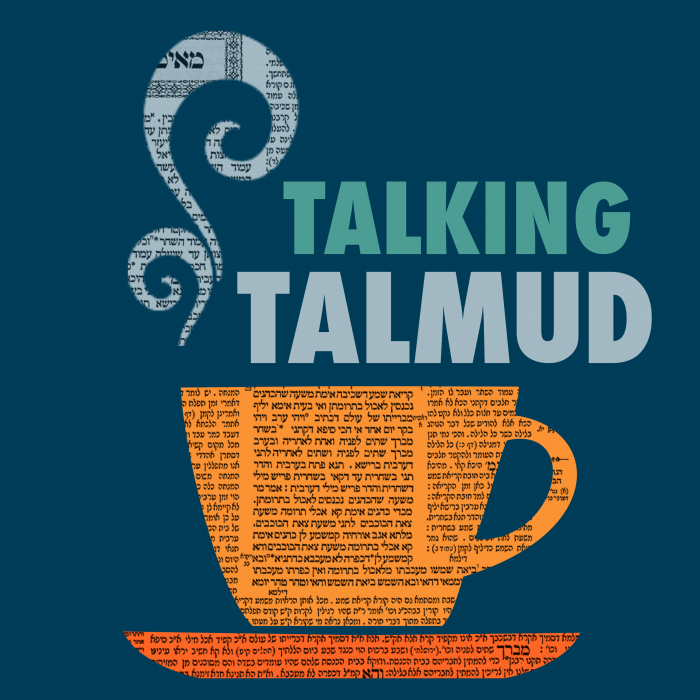There is a controversy over whether or not Megillat Taanit was canceled after the destruction of the Temple. Some amoraim raise a number of difficulties from tannaitic sources against the opinion of Rav and Rabbi Chanina that the Megillat Taanit was canceled. Through one of the sources brought, we learn that the Megillat Taanit forbade fasting and eulogies not only on the day of an event but also on the day before and after the event. This matter does not hold true for holidays and Sabbaths as the Sages needed to strengthen their own laws but not ones that were written in the Torah and also not to ones written in the Prophets, such as the fast days that were days of rejoicing in the time of the Temple. In response to the last question against Rav and Rabbi Chanina, the Gemara says that the issue was a source of debate among tannaim as well. The conclusion is that after the destruction, Megillat Taanit was canceled other than Purim and Hanukkah. Is Elul always a 29 day month? If so, why do messengers need to be sent in Tishrei? Is Adar always a 29 day month? If so, why do messengers need to be sent in Nissan? When there are two Adars, is it clear in advance how many days there will be in each month or not?
Rosh Hashanah 19
Share this shiur:
This week’s learning is sponsored for the merit and safety of Haymanut (Emuna) Kasau, who was 9 years old when she disappeared from her home in Tzfat two years ago, on the 16th of Adar, 5784 (February 25, 2024), and whose whereabouts remain unknown.
This week’s learning is dedicated of the safety of our nation, the soldiers and citizens of Israel, and for the liberation of the Iranian people. May we soon see the realization of “ליהודים היתה אורה ושמחה וששון ויקר”.
Want to dedicate learning? Get started here:


Today’s daily daf tools:
This week’s learning is sponsored for the merit and safety of Haymanut (Emuna) Kasau, who was 9 years old when she disappeared from her home in Tzfat two years ago, on the 16th of Adar, 5784 (February 25, 2024), and whose whereabouts remain unknown.
This week’s learning is dedicated of the safety of our nation, the soldiers and citizens of Israel, and for the liberation of the Iranian people. May we soon see the realization of “ליהודים היתה אורה ושמחה וששון ויקר”.
Today’s daily daf tools:
Delve Deeper
Broaden your understanding of the topics on this daf with classes and podcasts from top women Talmud scholars.
New to Talmud?
Check out our resources designed to help you navigate a page of Talmud – and study at the pace, level and style that fits you.
The Hadran Women’s Tapestry
Meet the diverse women learning Gemara at Hadran and hear their stories.
Rosh Hashanah 19
וְתִיפּוֹק לֵיהּ דְּהָוֵה לֵיהּ יוֹם שֶׁנֶּהֱרַג בּוֹ גְּדַלְיָה בֶּן אֲחִיקָם! אָמַר רַב: לֹא נִצְרְכָה אֶלָּא לֶאֱסוֹר אֶת שֶׁלְּפָנָיו.
The Gemara raises a difficulty: But if this was at the time that the Temple was standing, derive the prohibition against fasting on the third of Tishrei from the fact that it is the day that Gedaliah, son of Ahikam, was killed. During the time of the Temple the biblical fast days were celebrated as days of joy. Rav said: It was only necessary to include the third of Tishrei in Megillat Ta’anit in order to prohibit fasting on the preceding day as well. Fasting was forbidden not only on the actual days listed in Megillat Ta’anit, but also on the preceding day and the following day.
שֶׁלְּפָנָיו נָמֵי, תִּיפּוֹק לֵיהּ דְּהָוֵה לֵיהּ יוֹם שֶׁלְּאַחַר רֹאשׁ חֹדֶשׁ! רֹאשׁ חֹדֶשׁ דְּאוֹרָיְיתָא, וּדְאוֹרָיְיתָא לָא בָּעֵי חִיזּוּק.
The Gemara raises another difficulty: With regard to the prohibition against fasting on the preceding day, the second of Tishrei, also derive it because it is the day after the New Moon, and fasting is forbidden not only on festive days, but also on the preceding day and the following day. The Gemara rejects this argument: The New Moon is by Torah law, and festive days that are by Torah law do not require reinforcement. Therefore no decree was ever enacted prohibiting fasting on the days before and after.
דְּתַנְיָא: הַיָּמִים הָאֵלֶּה הַכְּתוּבִין בִּמְגִילַּת תַּעֲנִית אֲסוּרִין, בֵּין לִפְנֵיהֶם בֵּין לְאַחֲרֵיהֶם. שַׁבָּתוֹת וְיָמִים טוֹבִים — הֵם אֲסוּרִים, לִפְנֵיהֶן וּלְאַחֲרֵיהֶן מוּתָּרִין. מָה הֶפְרֵשׁ בֵּין זֶה לָזֶה? הַלָּלוּ דִּבְרֵי תוֹרָה, וְאֵין דִּבְרֵי תוֹרָה צְרִיכִין חִיזּוּק. הַלָּלוּ דִּבְרֵי סוֹפְרִים, וְדִבְרֵי סוֹפְרִים צְרִיכִין חִיזּוּק.
As it is taught in a baraita: These days that are written in Megillat Ta’anit are days on which fasting is prohibited, as are both the day before them and the day after them. With regard to Shabbatot and Festivals, fasting on them is forbidden, but on the day before them and the day after them fasting is permitted. What is the difference between this class of days and that class of days? These days, Shabbatot and Festivals, are by Torah law, and Torah laws do not need reinforcement, and therefore even if a fast day were decreed on the day before or after them, the Festival itself would not be nullified; whereas those days mentioned in Megillat Ta’anit are by rabbinic law, and rabbinic laws need reinforcement, and therefore fasting is prohibited even on the day before and the day after.
וְתִיפּוֹק לֵיהּ דְּהָוֵה לֵיהּ יוֹם שֶׁלִּפְנֵי יוֹם שֶׁנֶּהֱרַג בּוֹ גְּדַלְיָה בֶּן אֲחִיקָם! אָמַר רַב אָשֵׁי: גְּדַלְיָה בֶּן אֲחִיקָם דִּבְרֵי קַבָּלָה הוּא, וְדִבְרֵי קַבָּלָה כְּדִבְרֵי תוֹרָה דָּמוּ.
The Gemara raises yet another difficulty: The prohibition against fasting on the second of Tishrei, derive it from the fact that it is the day before the day that Gedaliah, son of Ahikam, was killed, and since in Temple times the fast of Gedaliah was celebrated as a festive day, fasting should also be prohibited on the preceding day. Rav Ashi said: The fast of Gedaliah, son of Ahikam, is derived from the texts of the tradition, i.e., Prophets and Writings, and as the texts of the tradition are treated like Torah statements for this purpose, they too do not need reinforcement.
מֵתִיב רַב טוֹבִי בַּר מַתְנָה: בְּעֶשְׂרִים וּתְמָנְיָא בֵּיהּ אֲתָת בְּשׂוֹרְתָּא טָבְתָּא לִיהוּדָאֵי דְּלָא יְעִידוֹן מֵאוֹרָיְיתָא. שֶׁגָּזְרָה מַלְכוּת הָרְשָׁעָה גְּזֵרָה שֶׁלֹּא יַעַסְקוּ בַּתּוֹרָה, וְשֶׁלֹּא יָמוּלוּ אֶת בְּנֵיהֶם, וְשֶׁיְּחַלְּלוּ שַׁבָּתוֹת. מָה עָשָׂה יְהוּדָה בֶּן שַׁמּוּעַ וַחֲבֵירָיו? הָלְכוּ וְנָטְלוּ עֵצָה מִמַּטְרוֹנִיתָא אַחַת שֶׁכׇּל גְּדוֹלֵי רוֹמִי מְצוּיִין אֶצְלָהּ.
Rav Tovi bar Mattana raised an objection against the opinion that Megillat Ta’anit was nullified, from that which is written in it: On the twenty-eighth of Adar the good tidings came to the Jews that they should not turn away from the Torah, and on that day fasting is forbidden. And this is explained: For the wicked kingdom issued a decree against Israel that they should not occupy themselves with Torah study, and that they should not circumcise their sons, and that they should desecrate Shabbat. What did Yehuda ben Shammua and his colleagues do? They went and took advice from a certain matron [matronita] whom all the prominent men of Rome would visit regularly, thinking that she would know how to annul the decree.
אָמְרָה לָהֶם: בּוֹאוּ וְהַפְגִּינוּ בַּלַּיְלָה. הָלְכוּ וְהִפְגִּינוּ בַּלַּיְלָה, אָמְרוּ: אֵי שָׁמַיִם! לֹא אֲחֵיכֶם אֲנַחְנוּ, וְלֹא בְּנֵי אָב אֶחָד אֲנַחְנוּ, וְלֹא בְּנֵי אֵם אַחַת אֲנַחְנוּ? מָה נִשְׁתַּנֵּינוּ מִכׇּל אוּמָּה וְלָשׁוֹן שֶׁאַתֶּם גּוֹזְרִין עָלֵינוּ גְּזֵירוֹת קָשׁוֹת? וּבִיטְּלוּם. וְאוֹתוֹ הַיּוֹם עֲשָׂאוּהוּ יוֹם טוֹב. וְאִי סָלְקָא דַּעְתָּךְ בָּטְלָה מְגִילַּת תַּעֲנִית — קַמָּיָיתָא בְּטוּל, אַחְרָנְיָיתָא מוֹסִיפִין?!
She said to them as follows: Come and cry out [hafgginu] at night in the streets and markets. They went and cried out at night, saying: O Heavens! Are we Jews not your brothers; are we not children of one father; are we not children of one mother? How are we different from every other nation and tongue that you issue such harsh decrees against us? And indeed the decrees were annulled, and the Sages made that day a festive day. And if it enters your mind to say that Megillat Ta’anit has been nullified, can you say that the first prohibitions against fasting they annulled, and then later ones were added?
וְכִי תֵּימָא הָכָא נָמֵי בִּזְמַן שֶׁבֵּית הַמִּקְדָּשׁ קַיָּים — וְהָא יְהוּדָה בֶּן שַׁמּוּעַ תַּלְמִידוֹ שֶׁל רַבִּי מֵאִיר, וְרַבִּי מֵאִיר בָּתַר הָכִי הֲוָה! דִּתְנַן: כְּלֵי זְכוּכִית שֶׁנִּיקְּבוּ וְהִטִּיף לְתוֹכָן אֲבָר, אָמַר רַבָּן שִׁמְעוֹן בֶּן גַּמְלִיאֵל: יְהוּדָה בֶּן שַׁמּוּעַ מְטַמֵּא מִשּׁוּם רַבִּי מֵאִיר,
And if you say that here too it is referring to the time when the Temple was standing, there is a difficulty, as Yehuda ben Shammua was a student of Rabbi Meir, and Rabbi Meir was after the destruction of the Temple. And proof that Rabbi Yehuda ben Shammua was a student of Rabbi Meir may be brought, as we learned in a mishna: With regard to glass vessels that had holes in them, which afterward were filled in with lead, the Sages dispute whether the utensil is considered a whole utensil, which can become ritually impure, or whether it is considered a broken utensil, which does not. Rabban Shimon ben Gamliel said: Yehuda ben Shammua declares that it becomes impure, in the name of Rabbi Meir;
וַחֲכָמִים מְטַהֲרִין.
whereas the Sages declare it pure. According to them, it is still considered a broken utensil. Rabbi Meir himself lived after the destruction of the Second Temple. The festive day commemorating the annulling of the decree of Rome was instituted as a result of an incident involving his student, Rabbi Yehuda ben Shammua. From this, it is clear that Megillat Ta’anit had not yet been nullified.
תַּנָּאֵי הִיא. דְּתַנְיָא: הַיָּמִים הָאֵלּוּ הַכְּתוּבִין בִּמְגִילַּת תַּעֲנִית, בֵּין בִּזְמַן שֶׁבֵּית הַמִּקְדָּשׁ קַיָּים בֵּין בִּזְמַן שֶׁאֵין בֵּית הַמִּקְדָּשׁ קַיָּים — אֲסוּרִין, דִּבְרֵי רַבִּי מֵאִיר. רַבִּי יוֹסֵי אוֹמֵר: בִּזְמַן שֶׁבֵּית הַמִּקְדָּשׁ קַיָּים — אֲסוּרִין, מִפְּנֵי שֶׁשִּׂמְחָה הִיא לָהֶם. אֵין בֵּית הַמִּקְדָּשׁ קַיָּים — מוּתָּרִין, מִפְּנֵי שֶׁאֵבֶל הוּא לָהֶם.
The Gemara answers: The question whether or not Megillat Ta’anit has been nullified is the subject of a dispute between tanna’im, as it is taught in a baraita: These days, which are written in Megillat Ta’anit, both when the Temple is standing and when the Temple is not standing, are days on which fasting is prohibited; this is the statement of Rabbi Meir. Rabbi Yosei says: When the Temple is standing, these days are prohibited for fasting because these days are a source of joy for Israel. But when the Temple is not standing, these days are permitted for fasting because these days are a source of mourning for them.
וְהִלְכְתָא בָּטְלוּ, וְהִלְכְתָא לֹא בָּטְלוּ. קַשְׁיָא הִלְכְתָא אַהִלְכְתָא! לָא קַשְׁיָא: כָּאן בַּחֲנוּכָּה וּפוּרִים, כָּאן בִּשְׁאָר יוֹמֵי.
The Gemara concludes: And the halakha is that these days were nullified, and the halakha is that they were not nullified. The Gemara asks: This is difficult, as one halakha contradicts the other halakha. The Gemara answers: It is not difficult. Here, it is referring to Hanukkah and Purim. These Festival days were never nullified, and Hanukkah is listed among the Festivals of Megillat Ta’anit. There, the halakha is referring to the rest of the days listed in Megillat Ta’anit, all of which were nullified.
עַל אֱלוּל מִפְּנֵי רֹאשׁ הַשָּׁנָה, וְעַל תִּשְׁרִי מִפְּנֵי תַּקָּנַת הַמּוֹעֲדוֹת. כֵּיוָן דְּנָפְקִי לְהוּ אַאֱלוּל, אַתִּשְׁרִי לְמָה לְהוּ?
§ The mishna taught: Messengers go out to inform about the sanctification of the New Moon in Elul, due to Rosh HaShana, and in Tishrei, due to the need to establish the correct dates on which to celebrate the Festivals of Tishrei. The Gemara asks: Once the messengers have gone out in the month of Elul to inform the people when the New Moon was declared, why do they need to go out again in Tishrei, as the New Moon of Tishrei always falls on the thirtieth day after the New Moon of Elul?
וְכִי תֵּימָא דִּלְמָא עַבְּרוּהּ לֶאֱלוּל, וְהָאָמַר רַבִּי חִינָּנָא בַּר כָּהֲנָא אָמַר רַב: מִימוֹת עֶזְרָא וְאֵילָךְ לֹא מָצִינוּ אֱלוּל מְעוּבָּר!
And if you say that messengers must go out for Tishrei as well, as perhaps the court added another day to the month of Elul, so that Rosh HaShana occurs on the thirty-first day after the New Moon of Elul, there is a difficulty. Didn’t Rabbi Ḥinnana bar Kahana say that Rav said: From the days of Ezra and onward, we have never found that the month of Elul had an additional day. Consequently, it is simple to calculate the days on which the Festivals of Tishrei occur, and there should be no need to send out messengers in Tishrei.
לֹא מָצִינוּ — דְּלָא אִיצְטְרִיךְ, הָא אִיצְטְרִיךְ — מְעַבְּרִינַן לֵיהּ.
The Gemara answers: When we say: We have not found that the month of Elul ever had an additional day, this does not mean that Elul cannot have an additional day, but only that it never happened because it was not necessary to add a day. But if it had been necessary, they would have added an additional day. Since it is possible that the month of Elul could have had another day added, there is reason to send out messengers for the month of Tishrei, so that all will know when to celebrate the Festivals.
הָא מִיקַּלְקַל רֹאשׁ הַשָּׁנָה! מוּטָב תִּיקַּלְקֵל רֹאשׁ הַשָּׁנָה וְלֹא יִתְקַלְקְלוּ כּוּלְּהוּ מוֹעֲדוֹת.
The Gemara asks: But if Elul has an additional day Rosh HaShana will be ruined, because people will celebrate it thirty days after the New Moon of Elul, when its real date is on the thirty-first day. The Gemara answers: Better that Rosh HaShana be ruined, and all the Festivals, i.e., Yom Kippur, Sukkot, and the Eighth Day of Assembly, not be ruined.
דַּיְקָא נָמֵי, דְּקָתָנֵי: עַל תִּשְׁרִי מִפְּנֵי תַּקָּנַת הַמּוֹעֲדוֹת, שְׁמַע מִינַּהּ.
The language of the mishna is also precise, as it teaches: Messengers go out in the month of Tishrei due to the need to establish the correct dates on which to celebrate the Festivals of Tishrei. The Gemara summarizes: Indeed, conclude from here that this is the correct understanding.
וְעַל כִּסְלֵיו מִפְּנֵי חֲנוּכָּה, וְעַל אֲדָר מִפְּנֵי הַפּוּרִים. וְאִילּוּ נִתְעַבְּרָה הַשָּׁנָה יוֹצְאִין אַף עַל אֲדָר שֵׁנִי מִפְּנֵי הַפּוּרִים — לָא קָתָנֵי. מַתְנִיתִין דְּלָא כְּרַבִּי. דְּתַנְיָא, רַבִּי אוֹמֵר: אִם נִתְעַבְּרָה הַשָּׁנָה — יוֹצְאִין אַף עַל אֲדָר הַשֵּׁנִי מִפְּנֵי הַפּוּרִים.
§ The mishna taught: Messengers go out in Kislev, due to Hanukkah, and in Adar, due to Purim. Whereas, it is not taught: If the year was a leap year, with an additional month of Adar, the messengers go out also in the second Adar due to Purim, which is celebrated in the second Adar. This indicates that the mishna is not in accordance with the opinion of Rabbi Yehuda HaNasi, as it is taught in a baraita: Rabbi Yehuda HaNasi says: If the year was a leap year, the messengers go out also in the second Adar, due to Purim.
לֵימָא בְּהָא קָמִיפַּלְגִי, דְּמָר סָבַר: כׇּל מִצְוֹת הַנּוֹהֲגוֹת בַּשֵּׁנִי — נוֹהֲגוֹת בָּרִאשׁוֹן, וּמָר סָבַר: כׇּל מִצְוֹת הַנּוֹהֲגוֹת בַּשֵּׁנִי — אֵין נוֹהֲגוֹת בָּרִאשׁוֹן.
The Gemara suggests: Let us say that they disagree about this. One Sage, the author of this mishna, holds that all the mitzvot observed in the second Adar, i.e., the special Torah readings and the mitzvot of Purim, are also observed in the first Adar. If they were observed in the first Adar and not in the second, the people have fulfilled their obligation. Therefore, there is no need to send messengers in the second Adar. And one Sage, Rabbi Yehuda HaNasi, holds that all the mitzvot observed in the second Adar are not observed in the first. It is therefore necessary to send messengers in the second Adar, so that people will know when to keep the mitzvot of Adar.
לָא, דְּכוּלֵּי עָלְמָא מִצְוֹת הַנּוֹהֲגוֹת בַּשֵּׁנִי — אֵין נוֹהֲגוֹת בָּרִאשׁוֹן, וְהָכָא בְּעִיבּוּר שָׁנָה קָמִיפַּלְגִי. דְּתַנְיָא: כַּמָּה עִיבּוּר שָׁנָה — שְׁלֹשִׁים יוֹם, רַבָּן שִׁמְעוֹן בֶּן גַּמְלִיאֵל אוֹמֵר: חֹדֶשׁ.
The Gemara rejects this argument: No, everyone agrees that the mitzvot observed in the second Adar are not observed on the first, and here they disagree about the length of the additional month in the leap year, as it is taught in a baraita: How long is the additional month in a leap year? Thirty days. Rabban Shimon ben Gamliel says: A month. Rabbi Yehuda HaNasi holds in accordance with the opinion of Rabban Shimon ben Gamliel, and since the additional month does not have a fixed number of days, it is necessary to send messengers also for the second Adar, so that people will know when to celebrate Purim. However, according to the first tanna, since the first Adar is always a fixed length, there is no need to send messengers.
מַאי שְׁנָא שְׁלֹשִׁים — דְּיָדְעִי? חֹדֶשׁ נָמֵי יָדְעִי! אָמַר רַב פָּפָּא: מַאן דְּאָמַר חֹדֶשׁ, רָצָה — חֹדֶשׁ, רָצָה — שְׁלֹשִׁים.
The Gemara asks: What is different about thirty days? It is different because people can count thirty days and know when the month ends and when Purim occurs. A month also, people know the length of it. The term month implies that it is a month of twenty-nine days, and based on that they know when to celebrate Purim. Rav Pappa said: The one who said that a month is added does not mean necessarily a month of twenty-nine days. Rather, if the judges of the court wish, they add a month of twenty-nine days; and if it wishes, they add thirty days. Therefore, it is necessary to send messengers also for the second Adar.
הֵעִיד רַבִּי יְהוֹשֻׁעַ בֶּן לֵוִי מִשּׁוּם קְהָלָא קַדִּישָׁא דִּירוּשָׁלַיִם עַל שְׁנֵי אֲדָרִים שֶׁמְּקַדְּשִׁין אוֹתָם בְּיוֹם עִיבּוּרֵיהֶן.
Rabbi Yehoshua ben Levi testified in the name of the holy community of Jerusalem about the two months of Adar, that they are sanctified on the day that could have been added to make them a full month, i.e., the thirtieth day after the previous New Moon. That is to say, the thirtieth day after the New Moon of the first Adar is always the New Moon of the second Adar, and thirty days after the New Moon of the second Adar is always the New Moon of Nisan.
לְמֵימְרָא דַּחֲסֵרִין עָבְדִינַן, מְלֵאִין לָא עָבְדִינַן! לְאַפּוֹקֵי מִדְּדָרֵשׁ רַב נַחְמָן בַּר חִסְדָּא. הֵעִיד רַבִּי סִימַאי מִשּׁוּם חַגַּי זְכַרְיָה וּמַלְאָכִי עַל שְׁנֵי אֲדָרִים, שֶׁאִם רָצוּ לַעֲשׂוֹתָן שְׁנֵיהֶן מְלֵאִין — עוֹשִׂין, שְׁנֵיהֶן חֲסֵרִין — עוֹשִׂין, אֶחָד מָלֵא וְאֶחָד חָסֵר — עוֹשִׂין, וְכָךְ הָיוּ נוֹהֲגִין בַּגּוֹלָה. וּמִשּׁוּם רַבֵּינוּ אָמְרוּ: לְעוֹלָם אֶחָד מָלֵא וְאֶחָד חָסֵר, עַד שֶׁיִּוּוֹדַע לָךְ שֶׁהוּקְבַּע רֹאשׁ חֹדֶשׁ בִּזְמַנּוֹ.
The Gemara comments: That is to say that they make the two months of Adar short months, of twenty-nine days, but they do not make them full months, of thirty days. This is to the exclusion of what Rav Naḥman bar Ḥisda taught, as Rav Naḥman bar Ḥisda taught: Rabbi Simai testified in the name of Haggai, Zechariah, and Malachi about two months of Adar in a leap year, that if the members of the court wish to make them both full, they may do so; and if they wish to make them both short, they may do so; and if they wish to make one full and one short, they may do so. And this is what they would do in the Diaspora, when they did not know which day was established as the New Moon. And in the name of our teacher, Rav, they said: The two months of Adar are always observed, one full and one short, unless it is known to you that the New Moon was fixed in its proper time, i.e., the first Adar is also short.
שְׁלַחוּ לֵיהּ לְמָר עוּקְבָא: אֲדָר הַסָּמוּךְ לְנִיסָן — לְעוֹלָם חָסֵר.
A ruling was sent from Eretz Yisrael to Mar Ukva, the Exilarch in Babylonia: The Adar that immediately precedes Nisan is always short, both in a regular year and in a leap year. But the first Adar in a leap year, which does not immediately precede Nisan, is sometimes full.
מֵתִיב רַב נַחְמָן: עַל שְׁנֵי חֳדָשִׁים מְחַלְּלִין אֶת הַשַּׁבָּת — עַל נִיסָן וְעַל תִּשְׁרִי. אִי אָמְרַתְּ בִּשְׁלָמָא זִמְנִין מָלֵא זִמְנִין חָסֵר — מִשּׁוּם הָכִי מְחַלְּלִינַן.
Rav Naḥman raised an objection from what was taught in a mishna: Witnesses who saw the new moon may desecrate Shabbat for the fixing of the New Moon of two months, for the month of Nisan and for the month of Tishrei, due to the important Festivals that occur in them. Granted, if you say that the Adar immediately preceding Nisan is sometimes full and sometimes short, due to that reason the witnesses may desecrate Shabbat, as if the witnesses come on the thirtieth, the month will be made short and that day will be declared the New Moon; otherwise, the month will be made full and the next day will be declared the New Moon.




